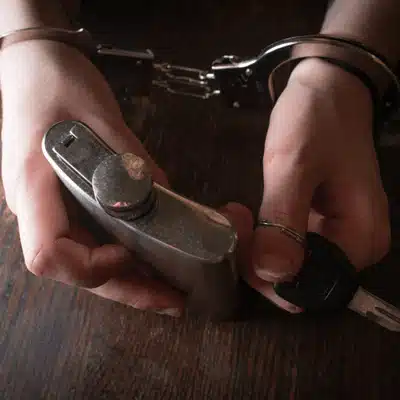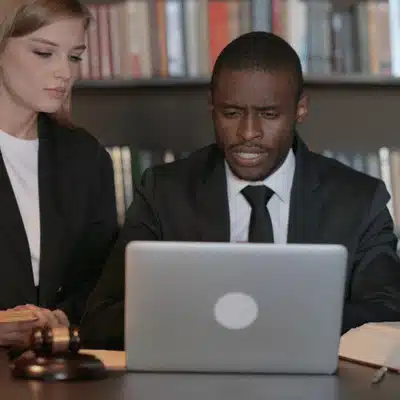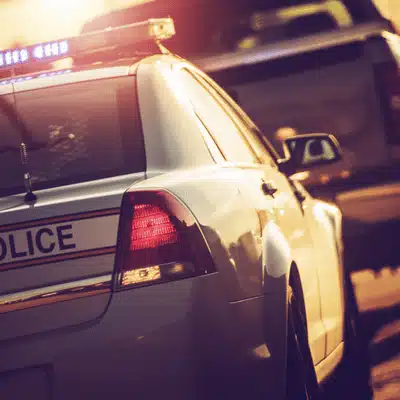Almost every DUI arrest today involves some form of recording. Whether it’s dash cam video, body camera footage, or surveillance footage, cameras capture the traffic stop, field sobriety tests, and arrest. This brings up an important question: Can you face a DUI conviction based solely on video evidence?
The short answer is yes, but there’s more to it. Video recordings play a major role in Texas DUI cases, but they must meet strict legal standards. Prosecutors rarely rely on footage alone. Let’s explore how law enforcement and defense teams use camera video evidence in 2025.

Body camera and dash camera recordings have changed how DUI cases work. These videos provide an unbiased record of what happened during a traffic stop. Unlike conflicting memories, cameras show exactly what occurred.
Police body camera footage often captures the driver’s behavior, speech patterns, and performance on field sobriety tests. Dashcam footage shows driving patterns before the stop. This traffic stop video footage can confirm or challenge what the officer wrote in the police report.
The footage makes a difference in court. It can expose discrepancies between officer observations and actual events. When the recording contradicts witness testimony, judges and juries take notice. Clear body camera footage often tips the scales in close cases.
Texas law gives arrested drivers important rights. Anyone arrested for DWI can obtain copies of all video recordings from the arrest. This includes body cam footage, field sobriety test video, and breath test video. Your defense attorney can request this camera equipment footage during discovery.
Video evidence absolutely can result in a DUI charge and contribute to a conviction. However, it rarely stands alone in court.
Prosecutors must prove beyond reasonable doubt that you were intoxicated while driving. Strong footage showing you swerving, stumbling during tests, or slurring your speech serves as powerful DUI evidence. The recording might show you failing tests or exhibiting clear signs of impairment.
When BAC test results aren’t available, prosecution teams lean heavily on body camera footage and officer observations. Texas courts have upheld convictions based on video footage and testimony alone. If you refused a breathalyzer test, law enforcement will use body cam footage to document your behavior and condition.
That said, prosecutors typically combine footage with other evidence. They present the arresting officer’s witness testimony to explain what the video shows. The officer describes the smell of alcohol, the driver’s coordination problems, or other details that cameras might miss.
Clear DUI arrest videos showing obvious impairment carry weight, but courts prefer multiple evidence sources. Grainy or incomplete footage needs corroboration. If the recording is distant or ambiguous, it won’t convince a jury on its own.
One important point: The absence of evidence doesn’t prevent conviction. Texas courts have ruled that missing footage isn’t grounds for acquittal. Cases can proceed on testimony and chemical test results alone.

For video recordings to work in court, they must meet Texas evidentiary standards. Prosecutors can’t just play footage and rest their case. They must prove the recording is relevant, shows authenticity, and remains unaltered.
A witness must testify that the video accurately depicts what happened. Usually, this is the officer who made the recording. The chain of custody matters too. Prosecutors must show how the digital evidence was handled from the scene to the courtroom. Any break in this chain of custody creates doubt about whether the footage is genuine.
Texas courts allow video authentication through distinctive characteristics. Time stamps, unique features, or other markers can prove genuineness. The judge decides whether proper foundation exists for admissibility.
The footage must be legally obtained. If officers violated rights or privacy laws, the recording might face suppression. Defense attorneys can file motions to exclude illegally gathered evidence.
Texas law governs police body cameras through specific guidelines. Departments must follow rules about when to activate video equipment, how long to retain footage, and how to store it securely. These standards protect the integrity of evidence and ensure dash camera recordings remain reliable.
Prosecutors mine footage for anything that supports their DUI case. They highlight bad driving patterns that establish probable cause for the stop. Weaving across lanes or running lights suggests impairment.
The recording shows field sobriety tests in action. If you stumbled, lost balance, or couldn’t follow instructions, prosecution argues this proves intoxication. Audio from body camera footage might catch slurred speech or admissions about drinking.
Breath test video from the station strengthens the case. It shows whether you refused testing or blew over the legal limit. The footage also demonstrates that officers followed proper procedures and read required warnings. Body cam footage captures every moment of the arrest process.
DUI arrest videos make the state’s case more vivid. Jurors see bloodshot eyes and unsteady movements rather than just reading about them. The recording prevents defense claims that officers exaggerated their observations. Prosecution teams present body cam footage alongside BAC test results to build compelling cases.
5 Strategic Ways Lawyers Protect Your Rights
Defense attorneys examine body cam footage and dash cam video frame by frame. They look for differences between the officer’s written report and what actually happened.
If the report says you were swaying and slurring, but the recording shows you standing steady and speaking clearly, it damages officer credibility.
Lawyers scrutinize the initial traffic stop on camera. They check whether the officer had legal grounds to pull you over in the first place.
If dash cam video shows only a brief line touch instead of dangerous weaving, your attorney can argue there was no lawful reason for the stop.
The footage reveals whether officers followed proper protocols when giving field sobriety tests. Mistakes in procedure make results unreliable.
Testing on uneven ground, poor lighting, or confusing instructions shown on body cam footage can invalidate test results completely.
If you performed well on tests in the recording, your defense uses that evidence to prove you weren’t impaired at all.
Body cam footage showing you following instructions correctly, maintaining balance, and speaking clearly becomes your strongest defense tool.
Surveillance footage and dash cam video provide an objective record. When footage contradicts testimony, it raises serious questions about the case.
Defense attorneys file discovery requests early to obtain all DUI video recordings and build the strongest strategy around camera evidence.
Your defense attorney examines footage frame by frame looking for reasonable doubt. Body cam footage and dash cam video often reveal discrepancies between the officer’s written report and actual events.
If the report claims you were swaying and slurring, but the recording shows you standing steady and speaking clearly, it damages credibility. These inconsistencies weaken prosecution and create doubt.
Defense lawyers scrutinize the initial stop on camera. If the officer claimed you were drifting but the dash cam video shows only a brief line touch, your attorney can challenge probable cause. Without lawful reason for the stop, all subsequent evidence might be suppressed.
The footage shows whether officers administered tests correctly. Testing on uneven ground or giving confusing instructions makes results unreliable. If you performed well on tests in the recording, your defense uses that to argue you weren’t impaired. Body cam footage provides clear documentation of test conditions and your actual performance.
Surveillance footage from nearby businesses or dash cam video holds police accountable to facts. When footage contradicts testimony, it raises questions about the entire DUI case. Your attorney can file discovery requests to obtain all DUI video recordings early, building a strong defense strategy around what the cameras captured. Body camera footage provides defense teams with tools to challenge every DUI charge effectively.

Video footage has become central to DUI cases in Texas. Prosecutors secure convictions using recordings combined with testimony. Clear footage showing impairment often convinces juries, especially when supported by evidence and witness testimony.
But video evidence cuts both ways. It might show you looking sober and courteous, undermining prosecution. It might reveal police errors that support suppression motions or even dismissal. Breath test video can show procedural mistakes that invalidate results. Body cam footage sometimes reveals issues with video equipment calibration or officer training.
In 2025, virtually every step of a DUI arrest appears on camera. Anyone facing a DUI charge must obtain and review body camera footage with an experienced attorney. Footage doesn’t lie, but different lawyers interpret it differently.
A skilled lawyer analyzes recordings for you. They challenge improper handling of evidence. They use footage to protect your rights and strengthen your case. When video evidence shows police mistakes or discrepancies, it becomes your most powerful tool. Breath test video, body camera footage, and dash cam video all require careful examination in every DUI case.
Don’t wait to review the video evidence in your DUI case. Every day that passes makes your defense harder. Contact an experienced DUI defense attorney immediately to obtain all dash camera and body camera footage from your DUI arrest. Your lawyer will examine every frame, identify problems with the prosecution’s case, and build the strongest possible defense. The cameras captured your arrest, now make sure they work in your favor.
Yes, law enforcement regularly uses body camera footage and breath test video as evidence in court. The recording must meet legal standards and typically accompanies officer observations. Prosecutors use body cam footage to show impairment signs like failed tests or slurred speech.
Discrepancies between video footage and reports damage officer credibility significantly. Your defense attorney can use these inconsistencies to create reasonable doubt in your DUI case. Courts take video evidence seriously when it conflicts with written testimony.
Texas law gives you the right to obtain all video recordings from your arrest during the discovery process. This includes police body camera footage of the stop, tests, and booking. Your attorney should request this evidence immediately.
Yes, Texas courts allow prosecution without video recordings of any kind. Cases can move forward based on officer observations, chemical test results, and testimony alone. Missing footage isn’t grounds for automatic dismissal.